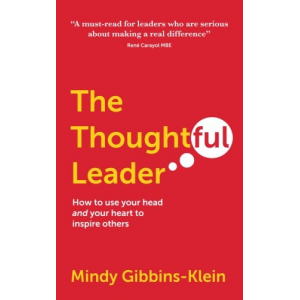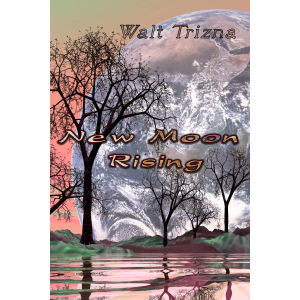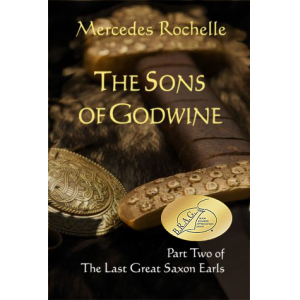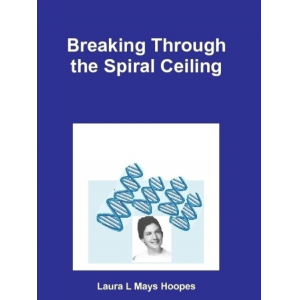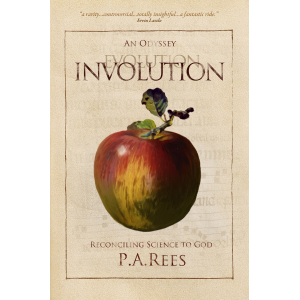- Author
- Book
- Story behind the book
- Media Links
- Reviews

Hunt Henion
About
Hunt Henion writes for the Examiner and has been involved in deciphering the spiritual nature of life his entire life. He has a PhD in Religious Studies and is a best-selling author. He's written five books and compiled two anthologies (both Amazon Best-sellers)..

Through the Eyes of Maria: Consequences
Description
<p>Maria’s life shifts course when destiny brings her into the arms of Christian. His earnest kindness and generosity offer the potential for a future she never imagined possible. Afraid of pushing Christian away, Maria changes her identity and buries her sordid past.<br /><br />But when the truth threatens to expose her calculated deception, will Maria find the courage to face her demons and salvage all that's at stake?<br /><br />Or will Maria be forced to accept that she simply cannot outrun the shadows that chase her?</p>
Story Behind The Book
Media Links
Reviews
<p style="margin:0in 0in 0pt;" class="MsoNormal"><font size="3"><span style="font-family:'Times New Roman';"><span> </span><span> </span><span> </span>“…his character's evolving consciousness in sequential lifetimes suggests a karmic series of actions and consequences…compatible with the most robust cases evaluated by the Reincarnation Experiment.” (Paul Von Ward, author of <em>The Soul Genome: Science and Reincarnation</em>.)</span></font></p> <p style="margin:0in 0in 0pt;" class="MsoNormal"></p><p><span style="font-family:'Times New Roman';"> </span></p> <p style="margin:0in 0in 0pt;" class="MsoNormal"><font size="3"><font face="Times New Roman">“You have not only given us a good and instructive narrative, but a collection of keen insights into the dynamics of reincarnation. All the best, Paul" 5/30/09<br /><br /></font></font></p> <p style="margin:0in 0in 0pt;" class="MsoNormal"><span lang="en-gb" xml:lang="en-gb">Review of Hunt Henion, THE DON Q POINT OF VIEW, Eureka (Massachusetts): SHIFT AWARENESS BOOKS, 2008, 132 pp., 1SBN: 978-0-9822054-19, www.shiftAwareness.com </span></p><p></p> <p style="margin:0in 0in 0pt;" class="MsoNormal"><span lang="en-gb" xml:lang="en-gb"></span></p><p> </p> <p style="margin:0in 0in 0pt;" class="MsoNormal"><span lang="en-gb" xml:lang="en-gb">by Christopher Rollason, Ph.D, Metz, France – rollason@9online, <a href="http://www.geocities.com/christopherrollason">www.geocities.com/christopherrollason</a></span></p><p></p> <p style="margin:0in 0in 0pt;" class="MsoNormal"><span lang="en-gb" xml:lang="en-gb"></span></p><p></p> <p style="margin:0in 0in 0pt;" class="MsoNormal"><span lang="en-gb" xml:lang="en-gb"></span></p><p></p> <p style="margin:0in 0in 0pt;" class="MsoNormal"><span lang="en-gb" xml:lang="en-gb"></span></p><p> </p> <p style="text-align:justify;margin:0in 0in 0pt;" class="MsoNormal"><em><span lang="en-gb" xml:lang="en-gb">Don Quixote</span></em><span lang="en-gb" xml:lang="en-gb">, Miguel de Cervantes’ world-famous novel, has offered generations of entranced readers a world where the boundaries between imagination and reality are porous, ever-changing, and repeatedly crossed. In the ninth chapter of Part I, Cervantes himself claims the book is ‘really’ a translation from an author writing in Arabic, Cide Hamete Benengeli; in the third chapter of Part II, the Don and Sancho are told about a book that is none other than the first part of Cervantes’ novel featuring themselves. Readers have been similarly imaginative. In the American literary tradition, Washington Irving tells of a Spanish countryman who solemnly believes Sancho and the Don to be real people; in Mark Twain’s </span><em><span lang="en-gb" xml:lang="en-gb">Huckleberry Finn</span></em><span lang="en-gb" xml:lang="en-gb">, Tom Sawyer spins yarns of elephants and diamonds and tells a sceptical Huck: “if I wasn’t so ignorant, but had read a book called “Don Quixote”, I would know without asking”.</span></p><p></p> <p style="text-align:justify;margin:0in 0in 0pt;" class="MsoNormal"><span lang="en-gb" xml:lang="en-gb"></span></p><p> </p> <p style="text-align:justify;margin:0in 0in 0pt;" class="MsoNormal"><span lang="en-gb" xml:lang="en-gb">Now, more than four centuries on, Hunt Henion’s </span><em><span lang="en-gb" xml:lang="en-gb">The Don Q Point of View </span></em><span lang="en-gb" xml:lang="en-gb">comes as the latest in a long line of tributes. It might be thought difficult to say anything new about the Don, but in these pages we have a reliving of the Man of la Mancha’s life and hard times that is startling in its originality.</span></p><p></p> <p style="text-align:justify;margin:0in 0in 0pt;" class="MsoNormal"><span lang="en-gb" xml:lang="en-gb"></span></p><p> </p> <p style="text-align:justify;margin:0in 0in 0pt;" class="MsoNormal"><span lang="en-gb" xml:lang="en-gb">The book’s narrating “I” tells the reader that he who writes actually was, in a past life, a Don Quixote who in real truth existed. The reader who agrees to suspend disbelief, or to believe all the way, is rewarded with a remarkable journey. Hunt Henion retraces his steps as the Don, riding side by side with Sancho across the La Mancha plain: and tells how the book Miguel de Cervantes wrote combined fact with fiction, mixing true recollections of Don Quixote’s life with his own elaborations and inventions.</span></p><p></p> <p style="text-align:justify;margin:0in 0in 0pt;" class="MsoNormal"><span lang="en-gb" xml:lang="en-gb"></span></p><p> </p> <p style="text-align:justify;margin:0in 0in 0pt;" class="MsoNormal"><span lang="en-gb" xml:lang="en-gb">G.K. Chesterton saw Cervantes’ Don as no better than a “lean and foolish knight’”. Hunt Henion’s Quixote is at the antipodes of any such travesty. He is lean, but he is not foolish. He is one whose vision aspires beyond the surface of things and makes of the world a constant battlefield between good and evil. Despite defeats and disappointments, the paladin of the good never says die, and goes on believing till his last breath in “the impossible dream”. The Don whom Hunt Henion brings to life is the heroic Quixote, the one who on a dusty road frees the chained prisoners bound for the galleys, the one who declares “I am who I am” and refuses to be another. Our narrator relives a life in which he, as Don Quixote, challenged the rigidities and cruelties of Spain in the Inquisition era, never faltering in his vision of a kinder and juster world. In the epoch of Barack Obama, this re-created Quixote is one who stands up against the giants and enchanters of oppression, and shouts long and loud, for all the world to hear, “YES, WE CAN!”</span></p><p></p> <p style="margin:0in 0in 0pt;" class="MsoNormal"><span lang="en-gb" xml:lang="en-gb"></span></p><p> </p> <p style="margin:0in 0in 0pt;" class="MsoNormal"><em>“ In addition to inspiring views, Henion shares stories behind the stories.<span> </span>… his style of pinpointing motivations and actions made for even more interesting reading.</em><span> </span>--Michelle A. Payton, Ph.D., Author of <em>“Birth Mix Patterns,</em>” “<em>Healing What’s Real</em>,” and<em>“Soul”utions.</em>”<span> <br /><br /></span></p> <p style="margin:0in 0in 0pt;" class="MsoNormal"><span style="color:#000000;">Fascinating tale of the true Don Quixote</span></p><p></p> <p style="margin:0in 0in 0pt;" class="MsoNormal"><span style="color:#000000;">Don Q is a remarkable memoir of a different sort. Based upon Hunt Henion’s personal memories and intuitive readings, he is able to share with us the wisdom of Don Quixote, also known as Cervante’s Man of La Mancha, because he was Quixote in a previous life.</span></p><p></p> <p style="margin:0in 0in 0pt;" class="MsoNormal"><span style="color:#000000;">Henion brings us up to speed as to why Quixote was so obsessed with his dreams by showing how the soul learns and grows by successive incarnations. He illustrates this by writing about several previous lifetimes from 3000 BC in ancient </span><span style="color:#000000;">Canaan</span><span style="color:#000000;">, to being a student of Pythagoras and Socrates and Dante's grandfather. These lifetimes of pain and struggle, as well as learning of a myriad of subjects, set the stage for Quixote’s incarnation. Lessons not learned and karma all come into play as Henion gives voice to the real Don Q.</span></p><p></p> <p style="margin:0in 0in 0pt;" class="MsoNormal"><span style="color:#000000;">The Don Q. Point of View is one of chivalry, seeing the beauty in all things, and begs us to question our own perceptions of reality. More than that, Henion explains and explores the concept of reincarnation in a very tangible, logical manner. This book is a great asset to anyone who enjoys the great classics, as well as spiritual seekers alike. </span></p><p></p> <p style="margin:0in 0in 0pt;" class="MsoNormal"><span> </span>Laura Faieth – author of the rock roll reincarnation book: “I Found all My Pieces”</p> <p style="margin:0in 0in 0pt;" class="MsoNormal"></p><p> </p> <p style="margin:0in 0in 0pt;" class="MsoNormal"></p>
